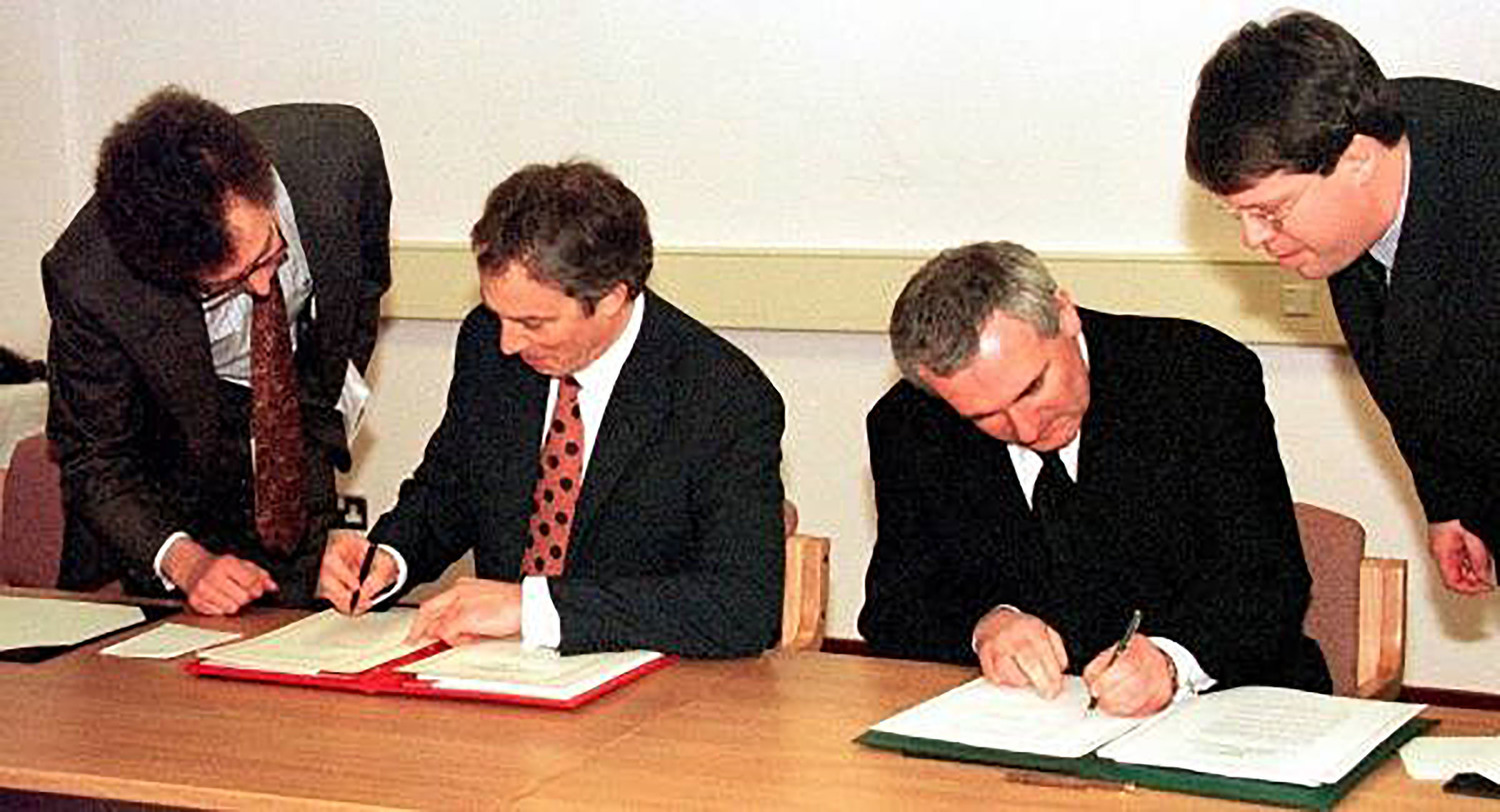THE United Nations (UN) has again deferred a decision on whether or not to strip the Northern Ireland Human Rights Commission (NIHRC) of a key international status.
Funding cuts implemented by the Northern Ireland Office (NIO) have meant the NIHRC, which was set up as part of the 1998 Good Friday Agreement, cannot fulfil its internationally recognised human rights obligations.
The NIHRC was set to learn before Christmas whether or not it would lose its ‘A’ National Human Rights Institution accreditation, awarded by the UN.
However, this decision has been postponed until next year – most likely March 2023 – pending the outcome of an independent review commissioned by the NIO.
The NIHRC previously told The Detail that NIO funding cuts have made it extremely difficult “to conduct investigations on any matter”, including into conditions in prisons. The last significant NIHRC report into prisons was produced well over a decade ago.
According to the NIHRC, a lack of funding is hampering its ability to fulfil its obligations under the Paris Principles – a set of international standards for national human rights institutions.
While the commission has held its ‘A’ status with the UN since it became eligible in 2007, an NIHRC spokesman said: “If the situation is not resolved…it is possible that the commission’s accreditation will be reduced to ‘B’ status institution.”
Such a drop in status would bring Northern Ireland to the same level as countries including Chad, Uzbekistan and Oman.
A year ago, the NIHRC’s Chief Commissioner Alyson Kilpatrick gave evidence about the impact of the NIO’s funding cuts to a subcommittee of the UN’s ‘Global Alliance of National Human Rights Institutions’.
The UN then decided to defer a decision on the commission’s status for a year. The NIHRC said its “funding situation has got worse” since then.
Ms Kilpatrick gave further evidence to the UN on October 5, 2022 in a private session.
The UN’s Office of the High Commissioner on Human Rights later wrote to the NIHRC explaining that “further consideration of the re-accreditation application of NIHRC will be deferred to its first session of 2023”.
The NIHRC told The Detail: “This will most likely be in March.”
A spokesman for the commission said: “The UN was informed of the ongoing independent review of the NIHRC.
“In the interest of procedural fairness, it was decided that NIHRC should be given an opportunity to provide further information regarding the outcome of the independent review and the possible impact on its ability to implement its mandate in an independent and effective manner.”
However, the NIHRC said its current funding is “restricted” and “not sustainable” because it limits the “commission’s ability to fulfil its statutory obligations” under the 1998 Northern Ireland Act.
The NIHRC also said that, despite cuts to its funding, it has been handed more responsibilities in the last two decades including the monitoring of the UK Government’s commitment to human rights in relation to the Northern Ireland Protocol.
Review

The NIHRC was a key component of the Good Friday Agreement, being signed here by Tony Blair (left) and Bertie Ahern (right).
In a report published last year, the UN said the NIHRC was “operating within a progressively restricted funding environment that has already required it to suspend, limit, or prioritise operations and cease planned recruitment, leaving them 20% below what they considered minimum capacity”.
In addition, the UN acknowledged the NIHRC was also “imminently facing a further proposed annual 5% budget cut until 2025”.
The UN called the situation “very serious and time sensitive”, and it strongly recommended “that an improved and sustainable position" be reached in the 12 months which followed – but this did not happen.
The UN also recommended that the commission should have more “financial autonomy” and that its budget should be less reliant on the NIO.
Following the UN report, the NIO agreed to an independent review of the commission’s core funding. This review has not yet been completed.
Once published, the review’s findings could help determine whether or not the NIHRC’s ‘A’ UN status is renewed or stripped away.
Robyn Scott, from human rights organisation the Committee on the Administration of Justice (CAJ), told The Detail: "Having a human rights commission, with all the powers and independence to meet UN standards, was one of the core safeguards in the Good Friday Agreement and is crucial to helping ensure the rights of people in Northern Ireland are protected.
“The UN Paris Principles are designed to ensure that human rights commissions the world over have a basic level of independence, including financial independence, so they can hold governments to account."
However, she added that Northern Ireland is "now at a point" where its commission "is being seriously undermined to the extent it could lose its UN status" due to "the NIO’s actions in slashing its funding back so much it cannot undertake its core work".
“This is part of a broader pattern established by the current UK Government of ignoring oversight and accountability," Ms Scott said.
"In terms of the NIHRC, for example, one of its core roles is to human rights proof legislation – yet the NIO introduced its legacy bill without even giving it to the commission, let alone listening to its advice.”
The NIO told The Detail it was pleased that the UN has deferred the accreditation decision until next year.
An NIO spokesman said: "This will allow the findings of an independent review – the terms of which were agreed jointly by the UK Government and the NIHRC – to be completed and published, and responded to by the UK Government."
 By
By
